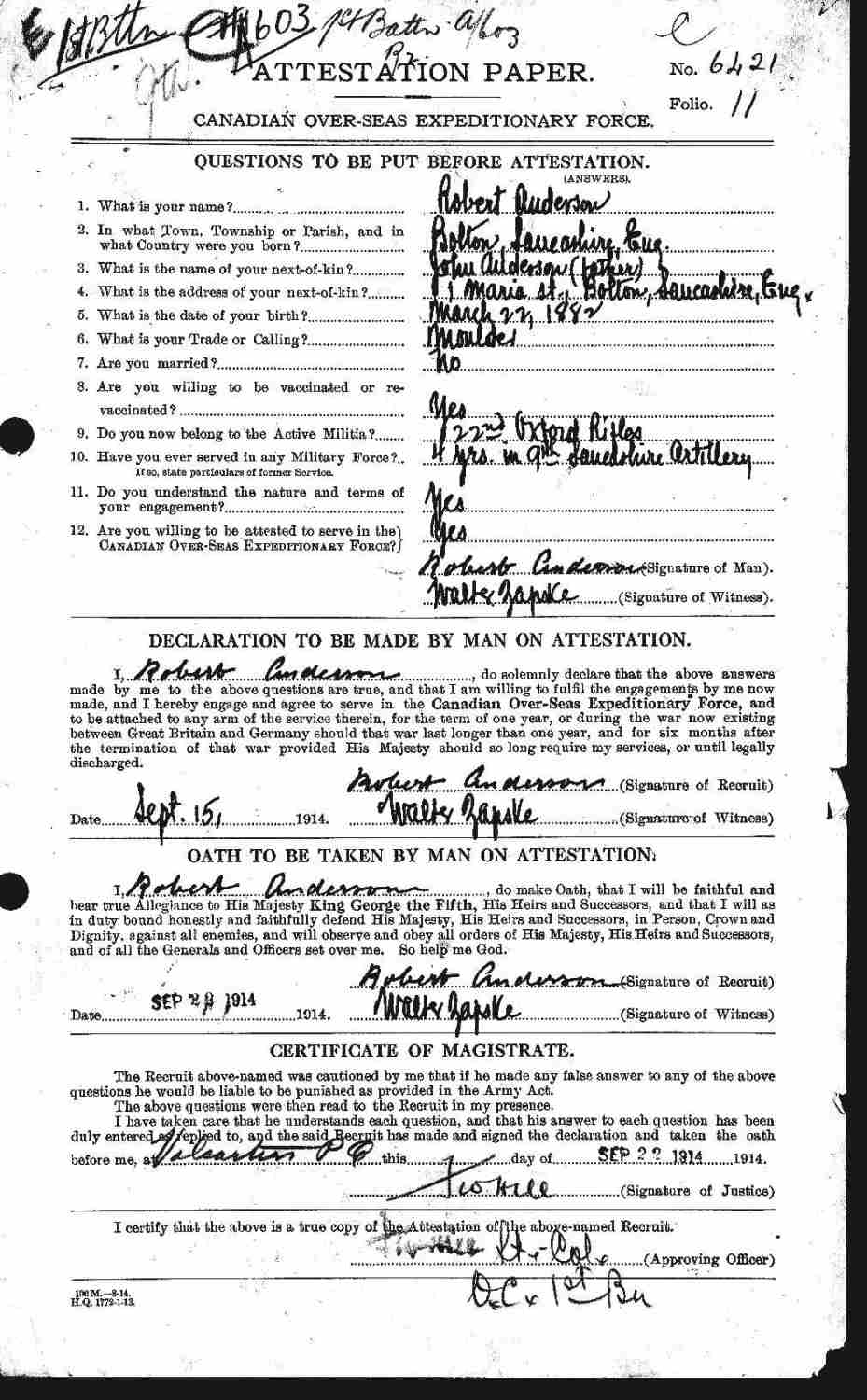WWI Veterans' Associations
WWI Veterans' Associations
County Archivist Liz Dommasch delves into the history of the veterans' associations created during and after the First World War in Oxford County, and some of the hardships faced by soldiers returning home.
By Liz Dommasch, County Archivist
With Archives staff working from home, it seems like an opportune time to tackle some of the backlog of unprocessed records we have in the vault. One such fonds, relates to World War One veterans and includes records of the Oxford Patriotic Association, Soldiers’ Aid Commission, Great War Veterans Association (GWVA) and the Oxford Returned Soldiers’ Association.
The Oxford Patriotic Association (OPA) was founded in 1914 to provide assistance to veterans and the families of men killed overseas. The OPA was originally called the 500 Club formed by a group of patriotic Woodstock citizens who levied upon themselves regular contributions in order to relieve hardship among the families of Woodstock men who had entered the armed services. The need for assistance became so great that the 500 Club members felt that they were no longer able to assume full financial responsibility and the Oxford County Council was approached. This resulted in the formation of the OPA, with the County, and the urban municipalities of Woodstock, Ingersoll and Tillsonburg lending their financial assistance through taxation. Its main goal was to help returned soldiers adjust to civilian life. OPA provided re-training programs for disabled soldiers, helped its members in obtaining jobs and gave financial help to men whose pensions were either overlooked by the Federal Government or were not adequate. OPA also provided moral support to many veterans who felt alienated from the rest of society.
Other organizations such as the Oxford Returned Soldiers’ Association (ORSA), Soldiers’ Aid Commission and the Great War Veterans Association (GWVA) were also established. The ORSA (established August 1916) functioned to raise funds to assist returned soldiers of Oxford County. The Soldiers Aid Commission (established 1916) was a Provincial organization that ensured employment for all veterans and assisted the dependents. The GWVA (established April 1917) was created in response to the demands of many soldiers who had returned to Canada.
The records the Archives have, include case files of veterans and family members seeking financial and vocational assistance. Many of the records are sensitive in nature and tell a sad tale of some of those in need. They also shed a light on how veterans were treated following the Great War and just how little was known about long term disabilities, Post-Traumatic Stress Disorder and mental health. Once such case involves Private Robert Anderson, who served with the 1st Battalion. Born in 1882 in Bolton, England, Pte. Anderson served with the Oxford Rifles Militia before enlisting in September 1914. He was shot in the temple on December 31st in Wulveringham, Belgium and was ultimately discharged from duty due to his injuries. In determining his pension and financial assistance the Pension Board declared that he was only three-eighths disabled, with his main disability being deafness, and would receive a pension of the Fourth Class ($16 a month). However, letters in his file go on to state that Pte. Anderson suffered from violent pains in the head and giddiness that required the administration of opiates to relieve the pain. It was also noted that he was affected mentally by continual suffering and that he and his family were relying on charity for existence. Unfortunately, little else is known, but from the records we do have, the Pension Board felt that his deafness still allowed him to work and refused to reassess his file in order to consider his other prevalent medical conditions. One letter did note, that he was due for a medical re-examination in the near future, and one hopes that his pension was reassessed at the time.

Pte. Anderson's Attestation Papers
Pte. Robert Anderson would be killed in a railway accident near Brantford in 1927, and was buried in Woodstock. He was 44 years old at the time.
If you are interested in learning more about the organizations formed, in the County, to assist WWI veterans or are seeking information on a particular veteran, please contact the Archives for more information. WWI personnel files are also available on the Library Archives Canada website and provide a great starting point for military research.
